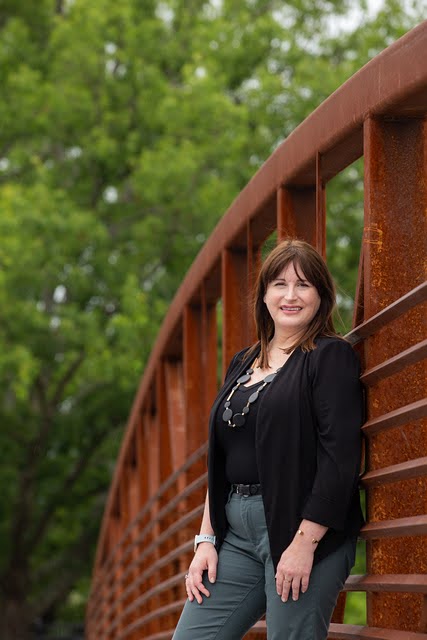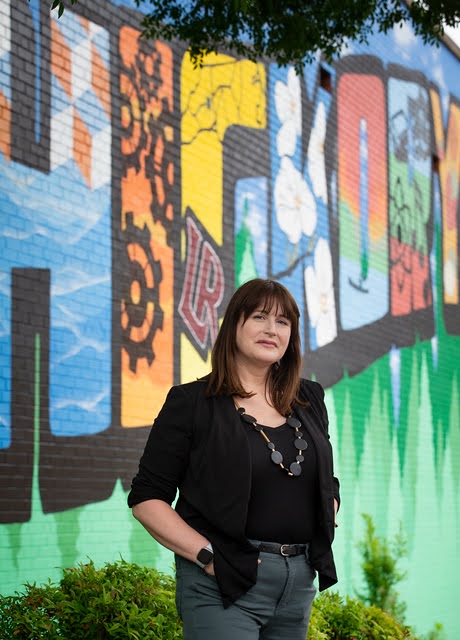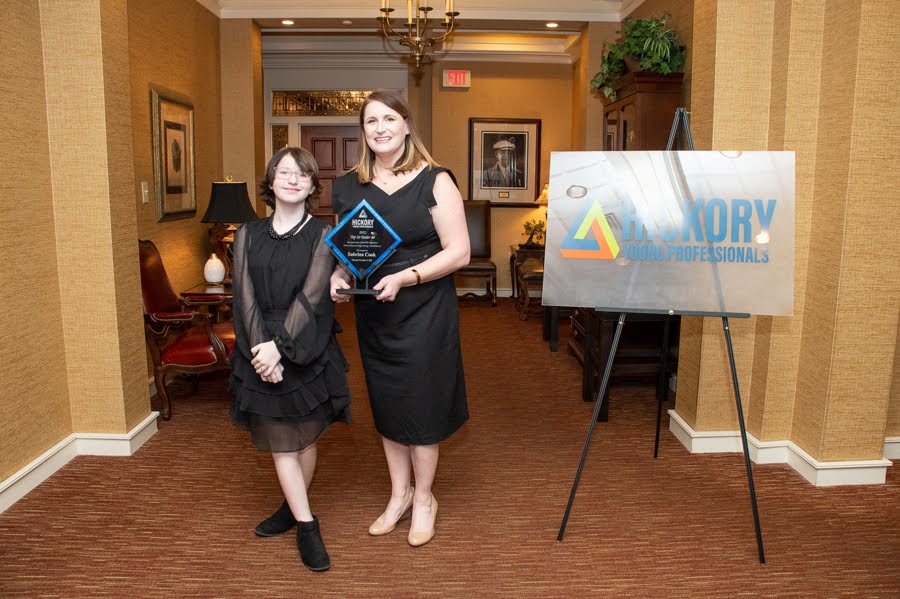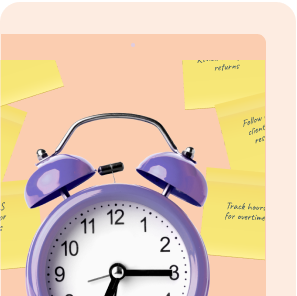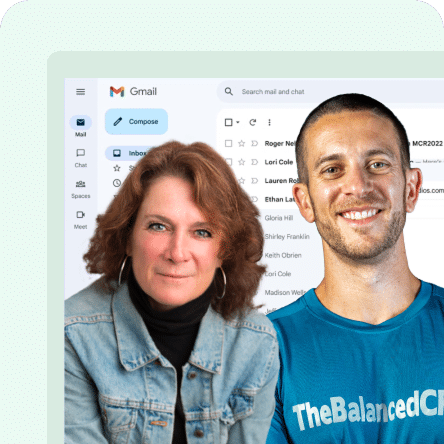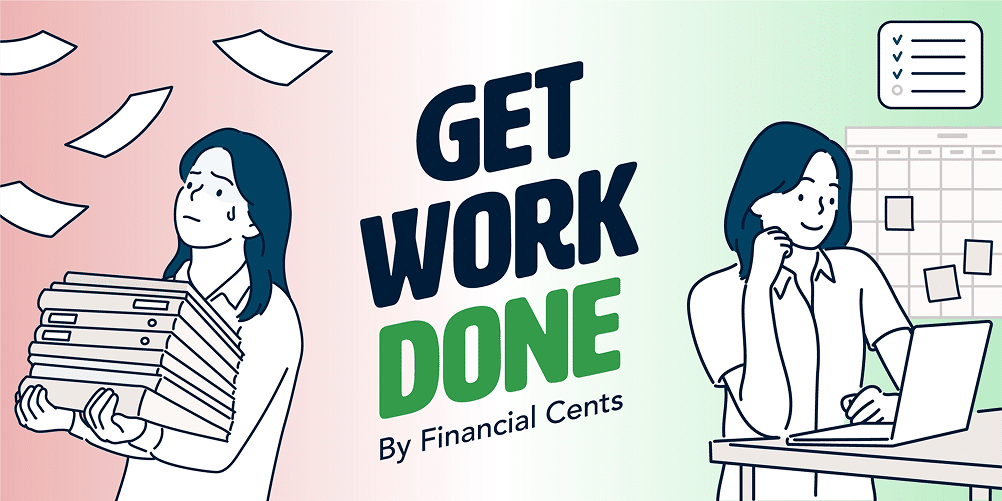Focus & Flow is a monthly series that features the inspiring stories of professionals with ADHD in the accounting industry who have tapped into this unique strength for success.
Imagine trying to focus on important details when your mind is a whirlwind of thoughts and distractions.
The stress of deadlines, the pressure to be perfect, and the constant fear of missing something crucial can make working in accounting feel like an insurmountable challenge for someone with ADHD. It’s a struggle that can lead to self-doubt, anxiety, and even burnout.
Enter Sabrina Parris, the president and founder of Honeycomb State Tax Strategies. She began her career at Deloitte, where she served multibillion-dollar corporations in the Lead Tax Services group and later became a Multistate Tax Consultant. This experience equipped her with the tools to go above and beyond simple tax preparation services, but she wanted a more interactive experience with her clients.
Financial Cents recently spoke with her about how she manages ADHD as an accounting firm owner, and her story is nothing short of inspirational.
With her unique approach, she has carved out a niche in the accounting world, proving that ADHD can be an asset rather than a hindrance.
Childhood Memories and Early Signs
Picture this: a young girl, her family constantly on the move because of her father’s Air Force career, finds herself exploring ancient castles in the English countryside.
These are some of Sabrina Parris’s earliest memories. “We moved probably about every 18 months. When I was much younger, we lived on an Air Force base in England. That’s where my sister and brother were born. Some of my earliest memories are visiting castles on weekends,” she recalls with a hint of nostalgia in her voice.
But amid these adventurous escapades, there were early signs that Sabrina’s brain operated differently. “In third grade, we did these math exercises where we had to solve problems as quickly as possible. I’m really good at math, always have been, but the pressure of a timed activity… I just froze,” Sabrina remembers. “I was way behind my classmates, and the teacher would call me out. That’s probably the earliest memory I have of something being really hard for me”.
The College Years: Distraction and Struggle
Fast forward to Sabrina’s college years, a time when the internet was becoming a major distraction. “Social media was just starting to take off, and AOL Instant Messenger was the thing. Sitting at a computer and focusing on work was nearly impossible with all these distractions,” she laughs, acknowledging the universal struggle of staying focused in the digital age.
Sabrina’s academic life became a battlefield of wills.
On one side was her natural aptitude for learning, and on the other, the growing number of distractions that seemed custom-made to derail her focus. “I remember sitting down to write a paper, and an hour later, I’d be knee-deep in chat rooms or downloading music.” she shares. This constant struggle wasn’t just about wasted time; it was about the mounting frustration and self-doubt that came with it.
“By grad school, my focus was depleted. There was nothing left. Grad school was really hard for me,” she admits. The mental fatigue was overwhelming, and the constant battle to concentrate became more than just an academic issue; it was a personal one. The pressures of higher education were immense, and Sabrina found herself questioning her capabilities, wondering if she could ever manage to stay on track long enough to meet her goals.
A Journey Through Misdiagnosis
In her early twenties, Sabrina faced another significant challenge. The difficulties she experienced were initially misdiagnosed as depression.
The misdiagnosis was not just a medical oversight; it was a source of emotional turmoil. Sabrina spent years feeling like she was battling an invisible enemy. “The antidepressants helped in some ways, but I still felt this underlying restlessness and inability to focus.”
The turning point came during a routine check-in with her psychiatrist. Sabrina had been describing her ongoing struggles with focus and productivity despite loving her job. “My psychiatrist listened carefully and then said, ‘Let’s test for ADHD.’ It was a simple questionnaire, but the results were eye-opening. The diagnosis explained so much about my life,” she says.
This moment of clarity was both relieving and overwhelming. On one hand, Sabrina finally had a name for her struggles. On the other hand, it meant reevaluating much of her life through this new lens. “Learning that I had ADHD felt like someone finally handed me the right map after years of wandering. It was a huge relief but also a bit daunting to realize how much I needed to adjust my strategies,” she reflects.
Learning that I had ADHD felt like someone finally handed me the right map after years of wandering."
Sabrina ParrisSabrina’s ADHD Management Strategy
With the correct diagnosis, Sabrina’s journey took a hopeful turn. She began taking Vyvanse, a stimulant medication that significantly improved her focus. “Vyvanse was life-changing for me. I really didn’t know how I had managed to function at work before it,” she says, her gratitude palpable.
The first day on Vyvanse felt like a revelation. “It was as if someone had finally handed me the remote control to my own brain. I could focus on one channel at a time instead of feeling like I was at the mercy of constant channel surfing,” she explains. The clarity and focus brought by the medication allowed Sabrina to experience work and life in a way she hadn’t before.
However, Sabrina quickly realized that medication was just one piece of the puzzle. “Medication alone wasn’t enough. Good habits were essential. If I don’t write things down, I forget them. If it’s not on my calendar, it doesn’t exist”. This epiphany led her to develop a robust system of organization and self-discipline. She kept meticulous to-do lists and set reminders for even the smallest tasks.
Furthermore, Sabrina began to understand the importance of a holistic approach to managing ADHD. “Medication helped me focus, but I needed to back it up with solid routines and self-care practices. It was about creating an environment where I could thrive,” she says. This included maintaining a consistent sleep schedule, eating a balanced diet, and setting aside time for exercise and relaxation.
The combination of medication and strategic habits transformed Sabrina’s professional life. “I started seeing my productivity soar. I could handle long, busy seasons without feeling completely drained. It was like I had finally found the missing pieces of the puzzle,” she says, a smile spreading across her face.
Medication alone wasn’t enough. Good habits were essential. If I don’t write things down, I forget them. If it’s not on my calendar, it doesn’t exist"
Sabrina ParrisTurning ADHD into a Strength
Sabrina’s journey with ADHD reached a pivotal moment when she discovered that her neurodivergence could be a unique asset in her profession. This revelation transformed her perspective and empowered her to see her condition not just as a challenge but as a competitive advantage.
“One reason that neurodivergent people are attracted to accounting is because of our ability to think of things differently than someone who’s neurotypical,” Sabrina shares, her voice full of conviction. “Hearing that made me feel really good because I thought about times where maybe I was able to think of things from a different perspective as a result of being neurodivergent and really having that advantage.”
This realization helped to reframe her experiences and leverage her unique cognitive style to excel in areas where others might struggle. “It’s not always a negative thing,” she asserts. “There were times when I could think of solutions or approaches that my neurotypical colleagues might not have considered.”
This shift in mindset also influenced how Sabrina interacted with her clients and colleagues. She began to advocate for a broader understanding of neurodiversity in the workplace, emphasizing that different cognitive styles could improve team dynamics and lead to better outcomes. “It’s important to understand the human aspect of it,” she explains. “Just like someone who has diabetes or depression, ADHD is a medical condition that can be managed effectively with the right support.”
Final Words
As our conversation drew to a close, Sabrina offered heartfelt advice to those struggling with ADHD. Her words were filled with empathy and practical wisdom from her experiences and triumphs:
“The best advice, as I tweeted earlier today,” she begins, “is to find a buddy. It can be someone who also has ADHD, but it doesn’t have to be. The important thing is that it’s someone you trust who can hold you accountable. Someone who can check in with you and make sure you’re staying on task”.
Having a buddy isn’t just about accountability; it’s also about having someone who understands the unique challenges you face. “This person can work quietly with you in the same room, providing that subtle but crucial pressure to stay on task. It’s about creating an environment where you feel supported and understood”. The value of this relational support cannot be overstated, as it helps reduce the isolation that often accompanies ADHD.
Sabrina also speaks to the importance of proactive check-ins. “Having someone who can check in on you and say, ‘Hey, do you need help?’ before things get out of hand is vital. You don’t want to reach the day before a deadline with twenty things left to do. That’s where a buddy can help manage those tasks and prevent last-minute panic”. This preemptive approach can make a significant difference in managing workload and reducing stress.
Reflecting on her own journey, she acknowledged that the path to managing ADHD is continuous and requires constant adjustment. “It’s an everyday thing. You have to look at what needs to get done, stay on task, and be flexible with your strategies. What worked yesterday might not work today, so having a range of tools in your toolkit is essential”. This adaptability is a cornerstone of her success, allowing her to navigate the unpredictable nature of ADHD with resilience.
Conclusion
Talking with Sabrina, it’s clear that ADHD isn’t just a challenge; it’s a different way of seeing the world, one that can bring unique strengths and perspectives, especially in fields as demanding as accounting.
Her story is one of embracing who you are, finding the right support, and turning potential obstacles into powerful tools for success.

